July 23, 2020
This story is a part of a documentary series produced in collaboration with NBC News by The Outlaw Ocean Project, a non-profit journalism organization based in Washington, D.C., that focuses on human rights, labour and environmental crimes at sea.
For years, no one knew why dozens of battered wooden "ghost boats" were routinely washing ashore along the coast of Japan, often with the bodies of starved North Korean fishermen reduced to skeletons.
An investigation by the journalism organization The Outlaw Ocean Project based on satellite data collected over the last two years has revealed, however, what marine researchers now say is the most likely explanation: China is sending an armada of industrial boats to illegally fish in North Korean waters, displacing smaller North Korean boats, forcing them farther out to rougher seas, and spearheading a decline in once-abundant squid stocks of more than 70 per cent.
The Chinese vessels — close to 800 last year — appear to be in violation of UN sanctions that forbid foreign fishing in North Korean waters in the Sea of Japan, also known as the East Sea. The sanctions, imposed in 2017 in response to the country's nuclear tests, were intended to punish North Korea by not allowing it to sell fishing rights in exchange for valuable foreign currency. (Canada is one of the countries helping to enforce those sanctions.)
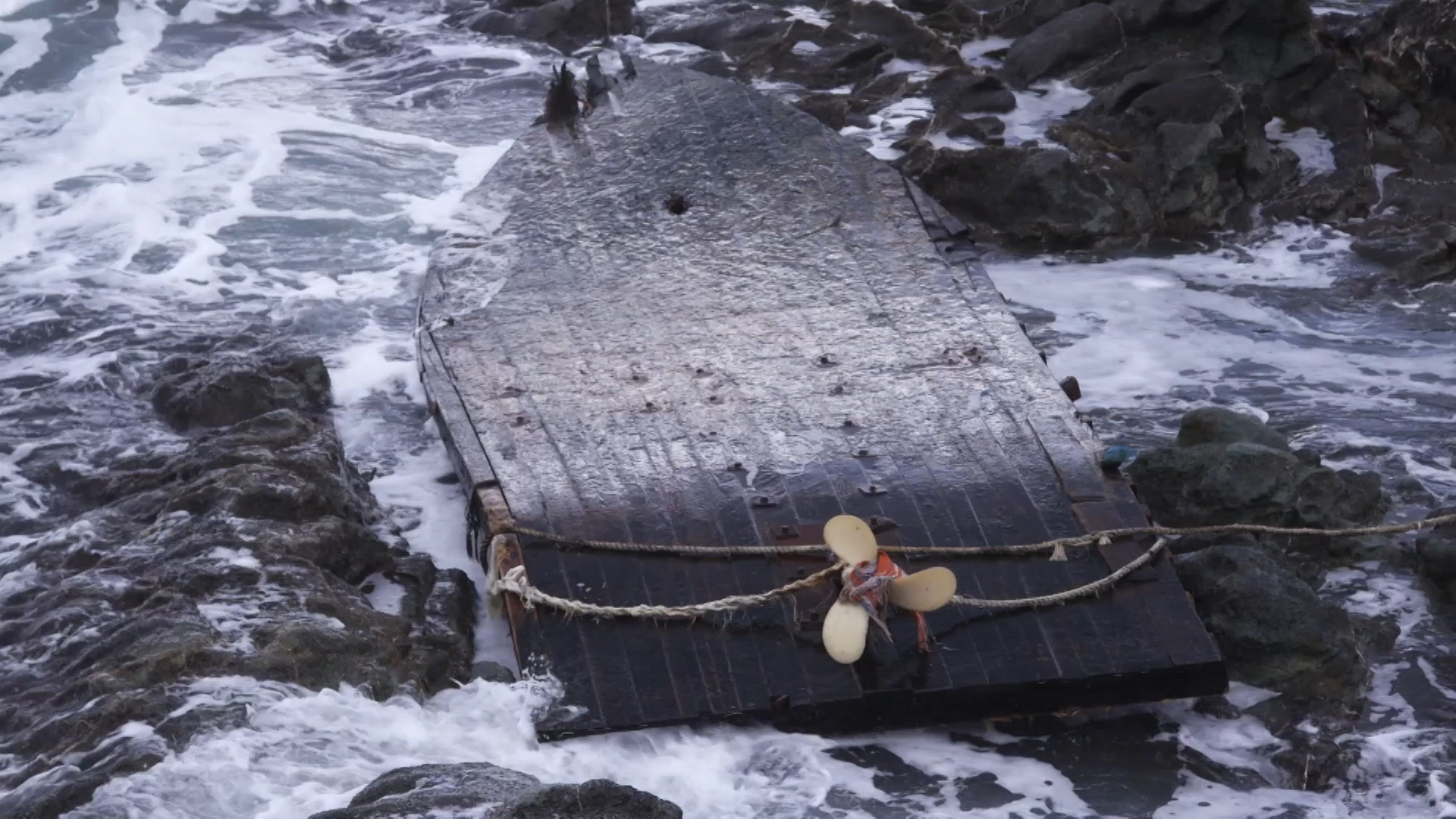
The number of ships newly revealed in the investigation comprises roughly a third the size of the entire Chinese distant-water fishing fleet. The public and commercial satellite data was analyzed by Outlaw Ocean, Global Fishing Watch and researchers and academics from the U.S., South Korea and Japan. It was also peer-reviewed and published in the academic journal Science Advances.
"This is the largest known case of illegal fishing perpetrated by a single industrial fleet operating in another nation's waters," said Jaeyoon Park, a data scientist from Global Fishing Watch, which tracks commercial fishing vessels around the world.
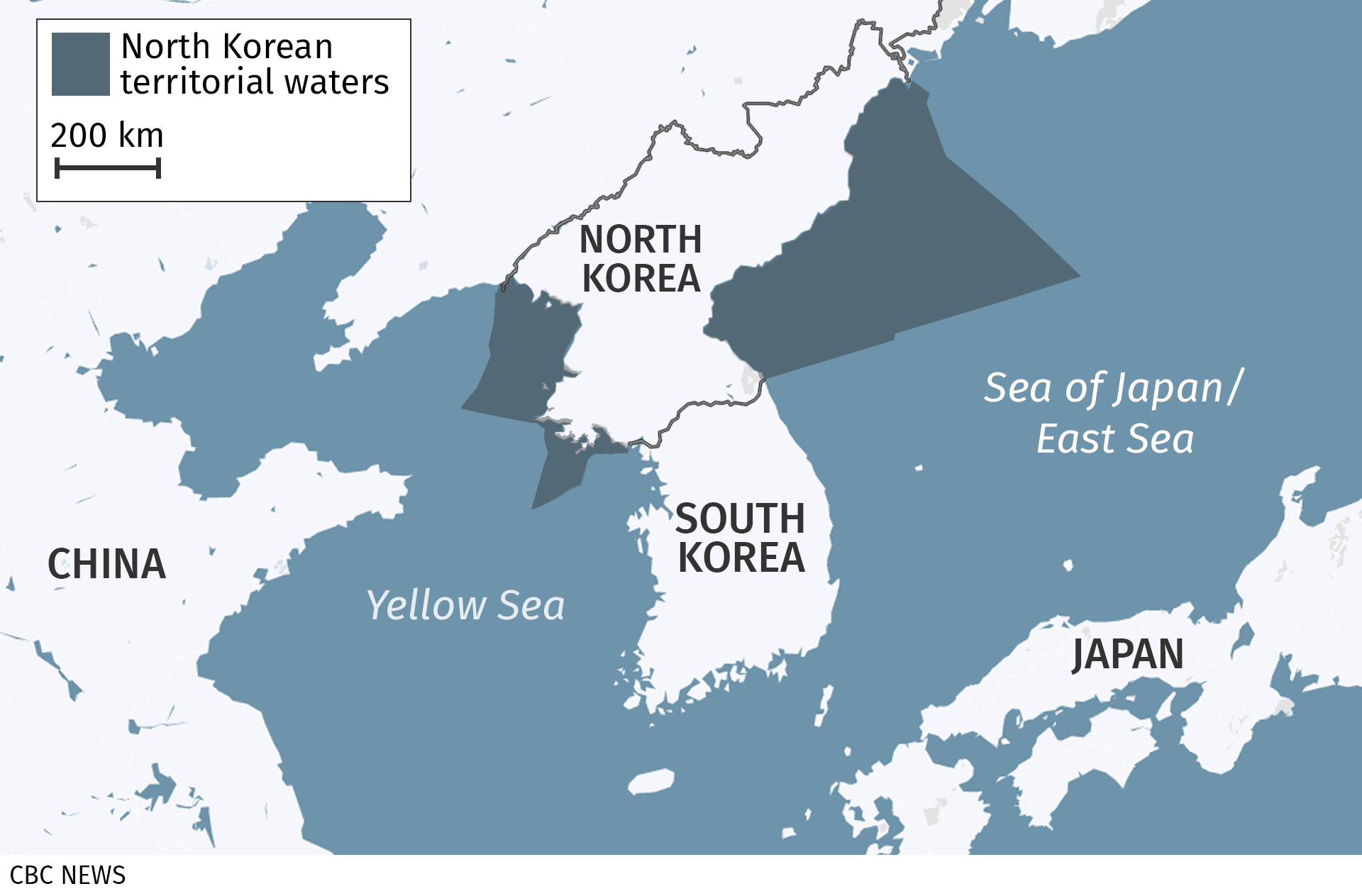
Presented with the findings, the Chinese Ministry of Foreign Affairs said that, "China has consistently and conscientiously enforced the resolutions of the Security Council relating to North Korea." The ministry said China has "consistently punished" illegal fishing.
It is unclear whether the North Korean government has authorized the Chinese ships. However, when South Korean Coast Guard authorities have boarded and inspected some of the ships as they traversed South Korean waters on their way to North Korean fishing grounds, the Chinese captains have presented fishing permits signed by North Korean authorities.

An elusive but expanding fleet
In March, two countries anonymously complained in a report to the United Nations about China's violations of the sanctions and provided satellite imagery of Chinese ships fishing in North Korean waters and testimony from Chinese fishing crew who said they had alerted their government of their plans to fish in North Korean waters.
Chinese officials dismissed this report, claiming the allegations were unfounded and involved scant few boats.
The recent revelations raise thorny questions about the consequences of China's ever-expanding role at sea and the lack of governance of the world's oceans.
Estimates of the total size of China's global fishing fleet vary widely. By some calculations, China has anywhere from 200,000 to 800,000 fishing boats, accounting for nearly half of the world's fishing activity. The Chinese government says its distant-water fishing fleet, or those vessels that travel far from China's coast, is roughly 2,600 vessels, but other research, such as this study by the U.K. think-tank ODI, puts the number closer to 17,000, with many of these ships operating undetected, in part by turning off the transponders that allow satellites to track them.
By comparison, the United States distant-water fishing fleet has fewer than 300 vessels.
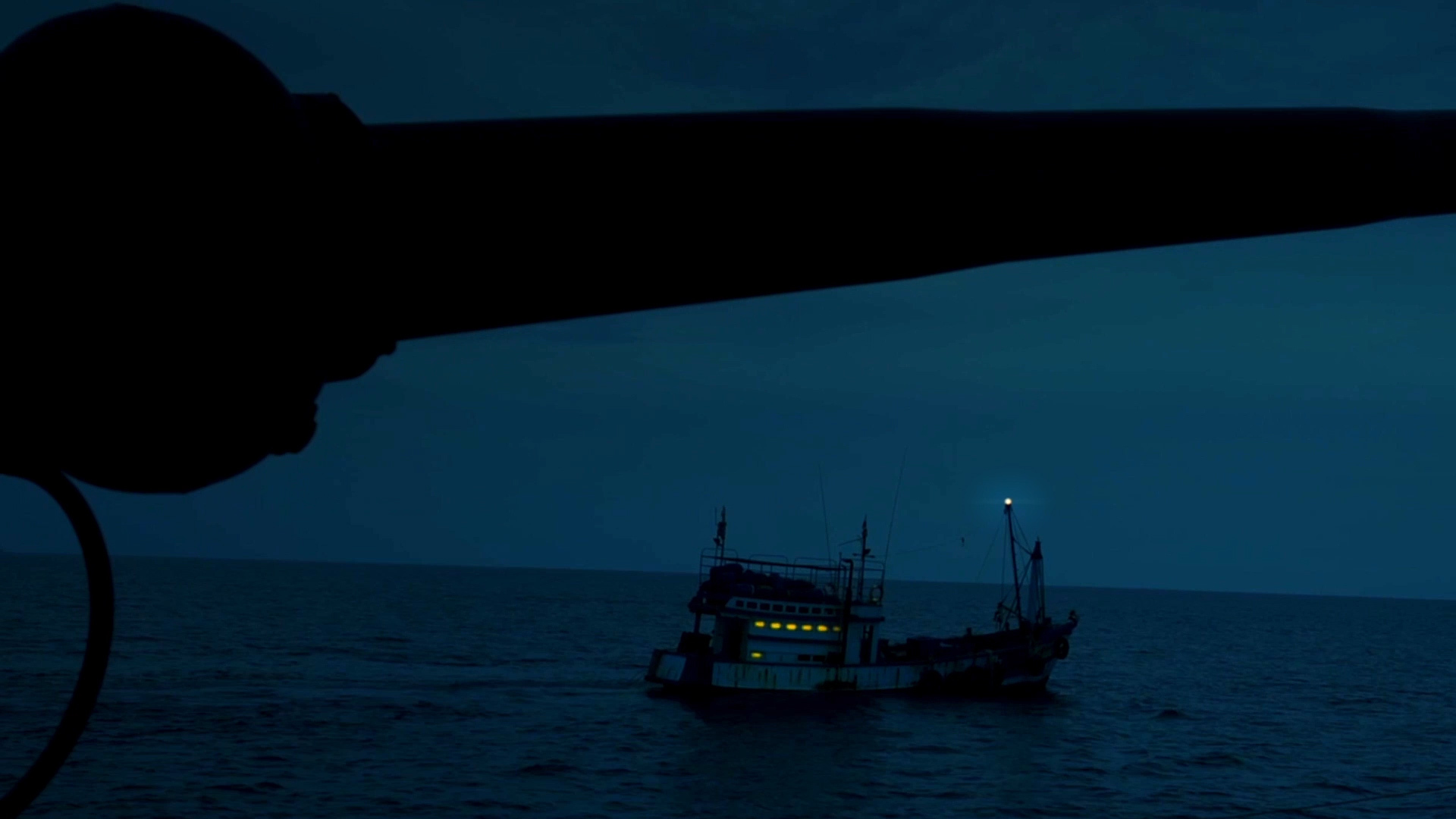
China is not only the world's biggest seafood exporter. The country's population also accounts for more than a third of all fish consumption worldwide. Having depleted the seas close to home, the Chinese fishing fleet has been sailing farther afield in recent years to exploit the waters of other countries, including those in West Africa and Latin America, where enforcement tends to be weaker as local governments lack resources or inclination to police their waters. Most Chinese distant-water ships are so large that they scoop up as many fish in one week as local boats from Senegal or Mexico might catch in a year.
Many of the Chinese ships combing Latin American waters target forage fish, which is ground into fishmeal, a protein-rich pelletized supplement fed to aquaculture fish. The Chinese fleet has also focused on shrimp and the now endangered totoaba fish, which is much prized in Asia for the alleged medicinal properties of its bladder and can sell for between $1,400 and $4,000 per fish.
Nowhere at sea is China more dominant than in squid fishing, as the country's fleet accounts for 50 to 70 per cent of the squid caught in international waters, effectively controlling the global supply of the popular seafood. Half of the squid pulled from the high seas by Chinese fishermen is exported to Europe, north Asia and the U.S.
To catch squid, the Chinese typically use trawling nets stretched between two vessels, a practice criticized by marine conservationists because it results in a lot of fish inadvertently and wastefully killed. Critics also accuse China of keeping high-quality squid for domestic consumption, exporting lower-quality products at higher prices, overwhelming vessels from other countries in major squid breeding grounds, and influencing international negotiations about conservation and distribution of global squid resources for its own interest.

Subsidizing squid
China's global fishing fleet did not grow into a modern behemoth on its own. The government has robustly subsidized the industry, spending billions of yuan annually. Chinese boats can travel so far partly because of a tenfold increase in diesel fuel subsidies between 2006 and 2011, after which Beijing stopped releasing statistics, according to a Greenpeace study.
For over a decade, the Chinese government has helped pay to construct bigger, more advanced steel-hulled trawlers, even sending medical ships to fishing grounds to enable the fleet to stay at sea longer. The Chinese government supports the squid fleet in particular by providing it with an informational forecast of where to find the most lucrative squid stocks, using data gleaned from satellites and research vessels.
On its own, distant-water squid fishing is a money-losing business, according to research by Enric Sala, founder and leader of the U.S. National Geographic Society's Pristine Seas project. The sale price of squid typically does not come close to covering the cost of the fuel required to catch the fish, Sala found.
Still, China is hardly the worst offender when it comes to such subsidies, which ocean conservationists say, through over-capacity and illegal fishing, are a major reason that the oceans are rapidly running out of fish. The countries that provide the largest subsidies to their high-seas fishing fleets are Japan (20 per cent of the global subsidies) and Spain (14 per cent), followed by China, South Korea, and the United States, according to Sala's research.
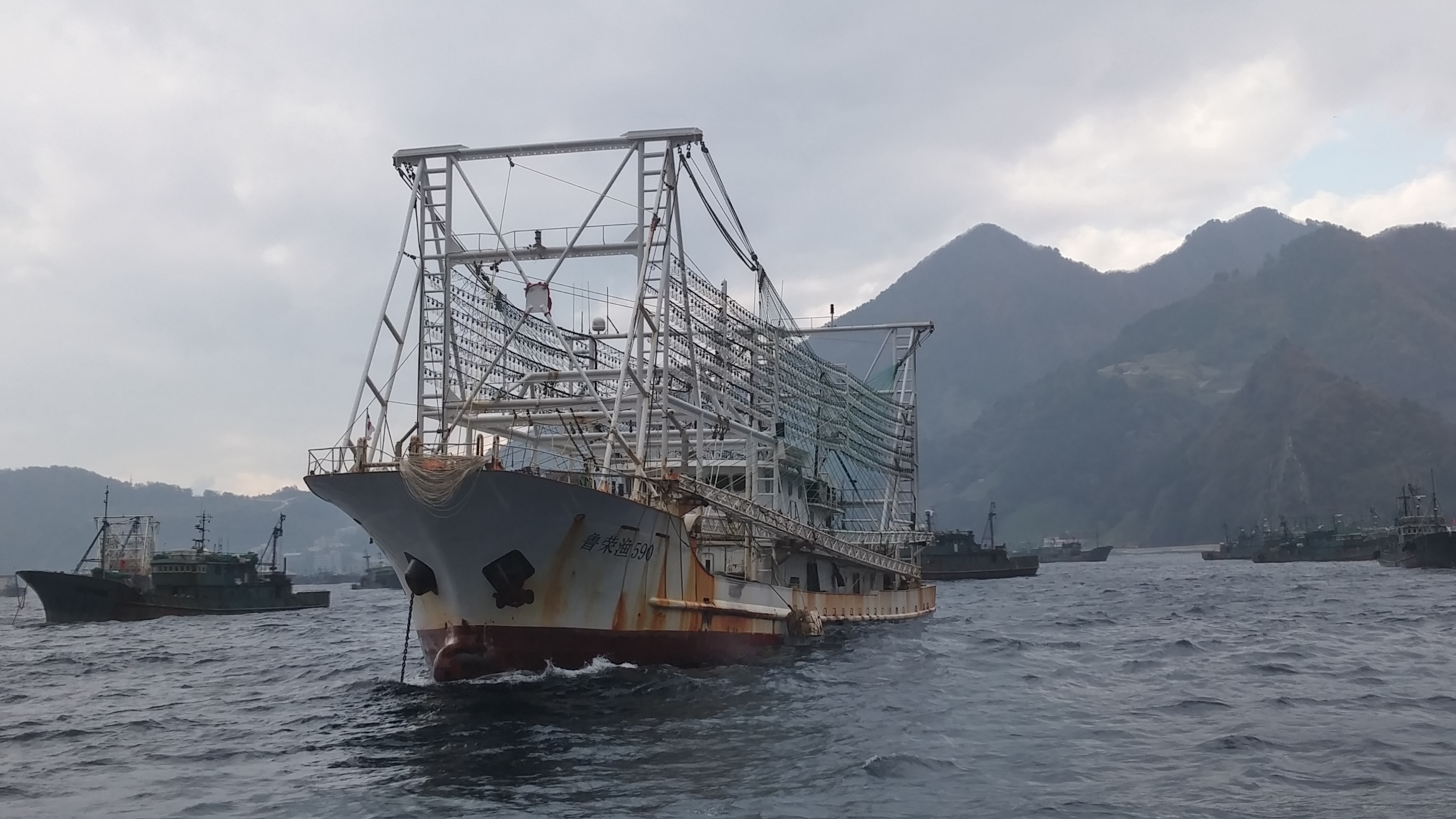
More recently, the Chinese government has stopped calling for an expansion of its distant-water fishing fleet and released a five-year plan that restricts the total number of offshore fishing vessels to under 3,000 by 2021.
Other attempts to rein in this fishing fleet, however, have been slow. Though China has modernized the industry's fishing gear, ship engines, radar and offshore cold storage, the government's efforts at regulation have not kept pace. Imposing reforms and policing them is difficult partly because laws are lax, much of the workforce on vessels is illiterate, many ships are unlicensed and lack the unique names or identifying numbers needed for tracking, and the country's fishery research institutions often refuse to standardize or share information domestically or abroad.
WATCH | Follow Ian Urbina of The Outlaw Ocean Project as he and Global Fishing Watch track Chinese squid ships in the Sea of Japan, or East Sea:
Still, more than seafood is at stake in the present size and ambition of China's fishing fleet. The country's commercial fishermen often serve as de-facto paramilitary personnel whose activities the Chinese government can use to further its geopolitical aims. This ostensibly private armada helps assert territorial domination, pushing back fishermen or governments that challenge China's sovereignty claims, which encompass nearly all of the South China Sea.
"What China is doing is putting both hands behind its back and using its big belly to push you out, to dare you to hit first," Huang Jing, the director of the Center on Asia and Globalization at the Lee Kuan Yew School of Public Policy in Singapore.
Chinese fishing boats are notoriously aggressive and often shadowed, even on the high seas or in other countries' national waters, by armed Chinese Coast Guard ships.
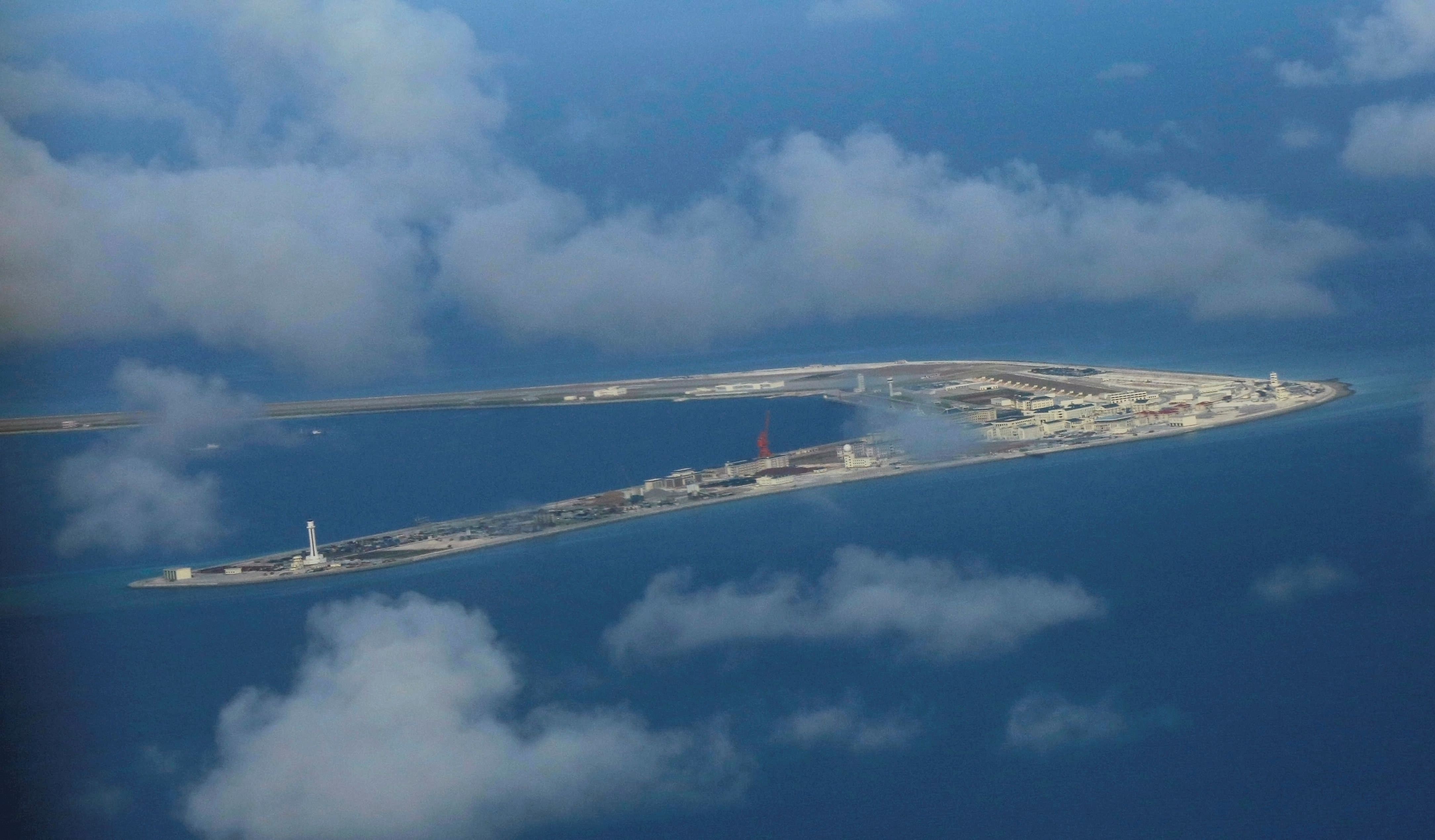
Swarming the zone
With competing historical, territorial and even moral claims from China, Vietnam, Philippines, Malaysia, Brunei, Taiwan and Indonesia, the South China Sea is among the most hotly contested regions in the world. Aside from fishing rights, the interests in these waters stem from a tangled morass of national pride, lucrative subsea oil and gas deposits and a political desire for control over a region through which a third of the world's maritime trade flows.
In the South China Sea, the Spratly Islands have attracted most attention as the Chinese government has built artificial islands on reefs and shoals in these waters, militarizing them with aircraft strips, harbours and radar facilities. Chinese fishing boats bolster the effort by swarming the zone, intimidating potential competitors, as they did in 2018, suddenly dispatching more than 90 fishing ships to drop anchor within several miles of Philippines-held Thitu Island, immediately after Manila began modest upgrades on the island's infrastructure.
And yet, clashes over fishing grounds involving the Chinese are not limited to the South China Sea. Japan and China are at odds over the Senkaku Islands, known in Chinese as the Diaoyu, or "fishing" islands, and the Argentine Coast Guard has opened fire on Chinese fishing vessels entering its waters.
From North Korea to Mexico to Indonesia and South America, incursions by Chinese fishing ships are becoming more frequent, brazen and aggressive. It hardly takes a great feat of imagination to picture how a seemingly civilian clash could rapidly escalate into a bigger military conflict.
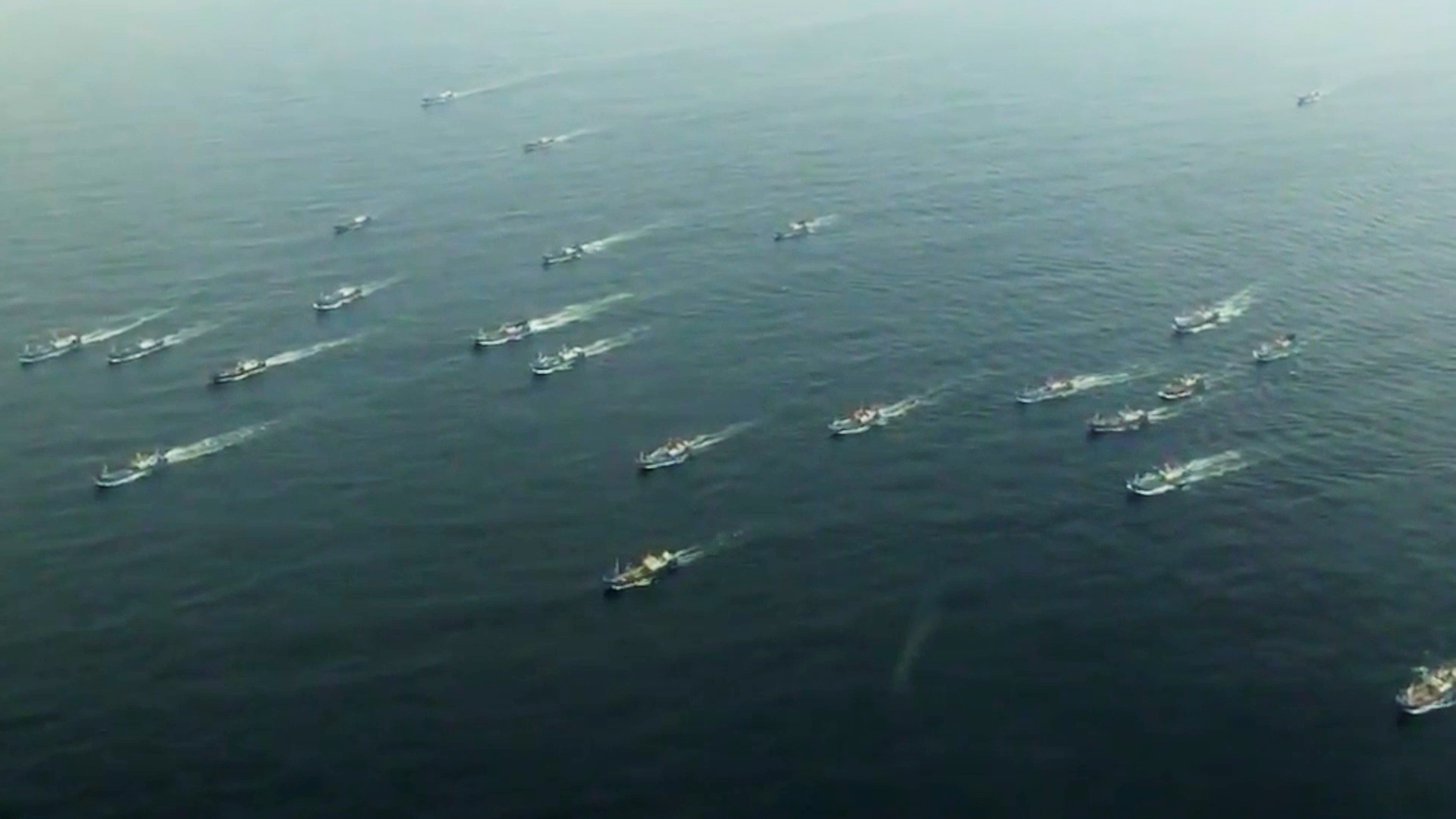
About the author and the project

Ian Urbina is a former investigative reporter for the New York Times whose work has also appeared in The Atlantic, The New Yorker and elsewhere. He is the director of The Outlaw Ocean Project, a non-profit journalism organization based in Washington, D.C., that focuses on reporting about environmental and human rights crimes at sea. Some of his investigative work on this subject was published last year in his book The Outlaw Ocean: Journeys Across the Last Untamed Frontier. Follow him at @ian_urbina on Instagram and Twitter or @ianurbinareporter on Facebook.
